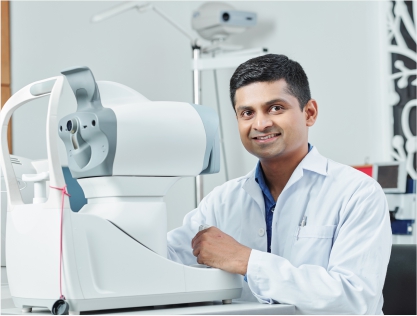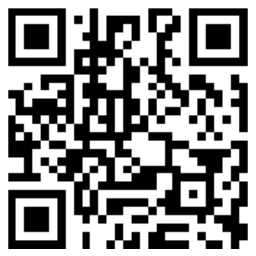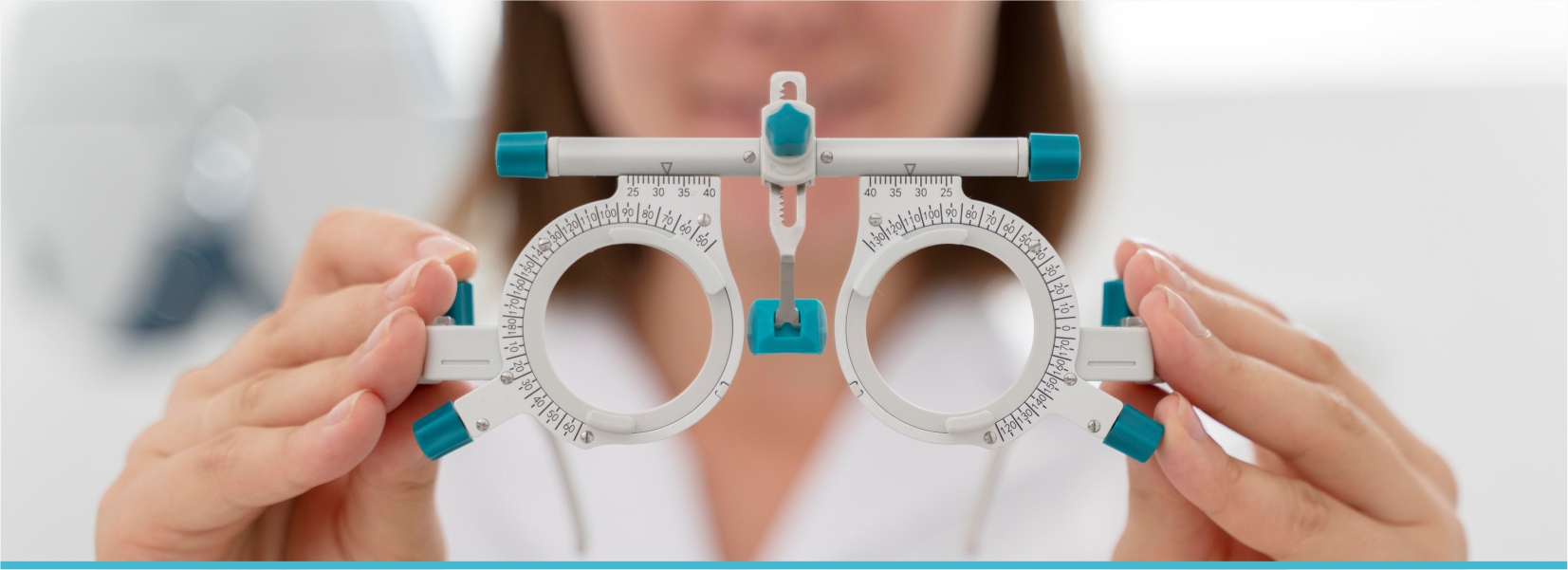Comprehensive Eye Care

Frequency For An Eye Exam
Infants and Toddlers (Birth to 24 months)?
- First eye examination between the ages of 6 and 9 months
Preschool Children (2 to 5 years)?
- Between the ages of 2 and 5 years
School Age Children (6 to 19 years)?
- Annually, Eye glasses should be checked every six months
Adults (20 to 39 years)?
- Every year, Eye Glasses should be checked every six months.
Adults (40 to 64 years)?
- Every 2 years
Adults (65 years or older)?
- Annually
Our Comprehensive Eye Check Up Includes
What's New
Register via QR Code to stay up to date with the information from medical & alternative medicine from Tej Eye Center and allied organizations for complete healing or download brochure for know more about Comprehensive Eye Care
Download Brochure

Eye Diseases

Vision Problems
Changes in your eyes can affect your sight:

Systemic Diseases
Frequently Asked Questions
- Patient and family health history
- Visual acuity measurement
- Preliminary tests of visual function and eye health, including depth perception, color vision, peripheral (side) vision and the response of the pupils to light
- Assessment of refractive status to determine the presence of nearsightedness, farsightedness or astigmatism
- Evaluation of eye focusing, eye teaming and eye movement abilities
- Eye health examination
- Additional tests as needed
Testimonial

 People who enjoy
excellent vision often wonder
whether they really need to
schedule an eye exam. But an eye
exam is just as much about
checking the healthiness of your
eyes as it is evaluating how
well you can see.
People who enjoy
excellent vision often wonder
whether they really need to
schedule an eye exam. But an eye
exam is just as much about
checking the healthiness of your
eyes as it is evaluating how
well you can see.